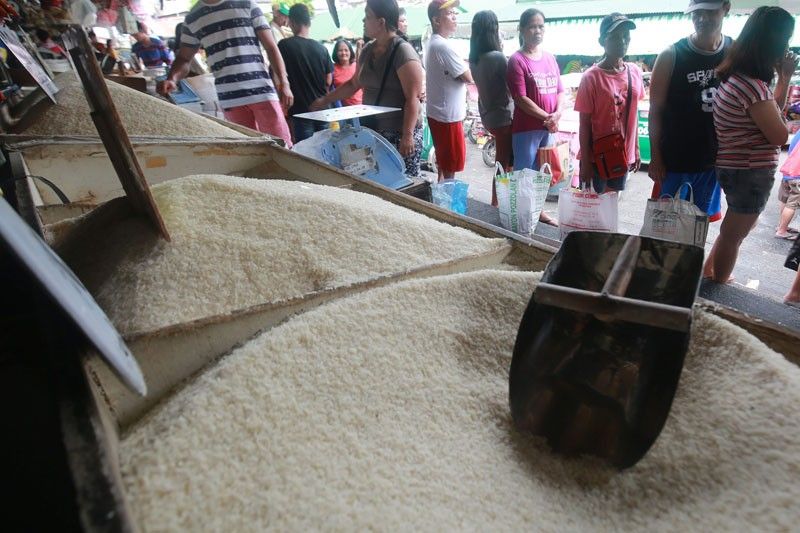Rice prices to fall as low as P30/kg — DTI

MANILA, Philippines — Rice prices could go as low as P30 per kilo with the implementation of the rice tariffication law, the Department of Trade and Industry (DTI) said.
“I am not making any promises, but with more imports, we can see the price go down to P30 to P32 (per kilo),” Trade Secretary Ramon Lopez said.
He said the lower price could be seen in three weeks.
Under the Rice Tariffication Law which took effect last March 5, rice traders would be allowed to import the staple from various sources without permit from the National Food Authority provided they secure a sanitary and phytosanitary import clearance from the Bureau of Plant Industry of the Department of Agriculture and pay the appropriate tariff.
The law is intended to help ensure stable supply and address high rice prices seen last year.
Lopez said it takes about two weeks for imports to arrive in the country.
Consumers can already see the rice being sold for as low as P34 per kilo when they go to supermarkets.
He said the Presyong Risonable Dapat (PRD) program launched by the DTI last year to allow retailers to directly import rice and sell it at a fixed price of P38 per kilo and below, has also helped make the staple available at a more affordable cost.
To participate in the PRD, retailers need to file applications with the DTI, and inform the agency of the volume of rice they want to import, as well as where the imports would be sold and where they would pay the tariff.
Apart from more imports, Lopez said the support being provided to local farmers should help bring down prices.
He said around P5 billion has been allocated this year to support rice farmers.
“So, we will see more of cheaper rice. That is what we are after,” he said.
Meanwhile, the United States Department of Agriculture-Foreign Agricultural Service (USDA-FAS) thinks the rice liberalization law will not have an immediate impact as earlier projected.
“Its effects are expected to be more pronounced in the next two to three years, and will largely depend on how the interventions are implemented and how efficiently the bureaucracy transitions to liberalized rice trade,” USDA said.
The Rice Tariffication Law includes a P10 billion Rice Competitiveness Enhancement Fund to make the local industry more competitive.
The RCEF is on top of the initial P5 billion budget already released and another P7 billion of the regular funding programmed by the Department of Agriculture for the rice program.
“Actual rice consumption is expected to increase modestly in two to three years as effects of the liberalization of rice imports (increased imports resulting in falling rice prices) become more apparent,” it said.
Rice is a staple food in the country and the law is intended, in part, to spur imports to quell domestic unrest caused by inflation.
Economic managers earlier claimed that rice prices would start going down just a few months after the law’s signing.
USDA earlier reported that the Philippines was already sourcing some 2.6 million metric tons of rice as additional imports are anticipated amid policy change removing quantitative restrictions on Filipinos’ basic commodity.
This makes the country the second-largest rice importer for 2019, next to China with an estimated 4.5 million MT of rice imports.
USDA said rice imports from ASEAN member countries would increase as a result of rice tariffication, benefiting from geographic proximity and lower tariffs.
Rice production for the year is forecast to rise to 19.4 MT or two percent higher than the previous year, boosted by government investments to make the local industry more competitive. – With Louise Maureen Simeon
- Latest
- Trending



























